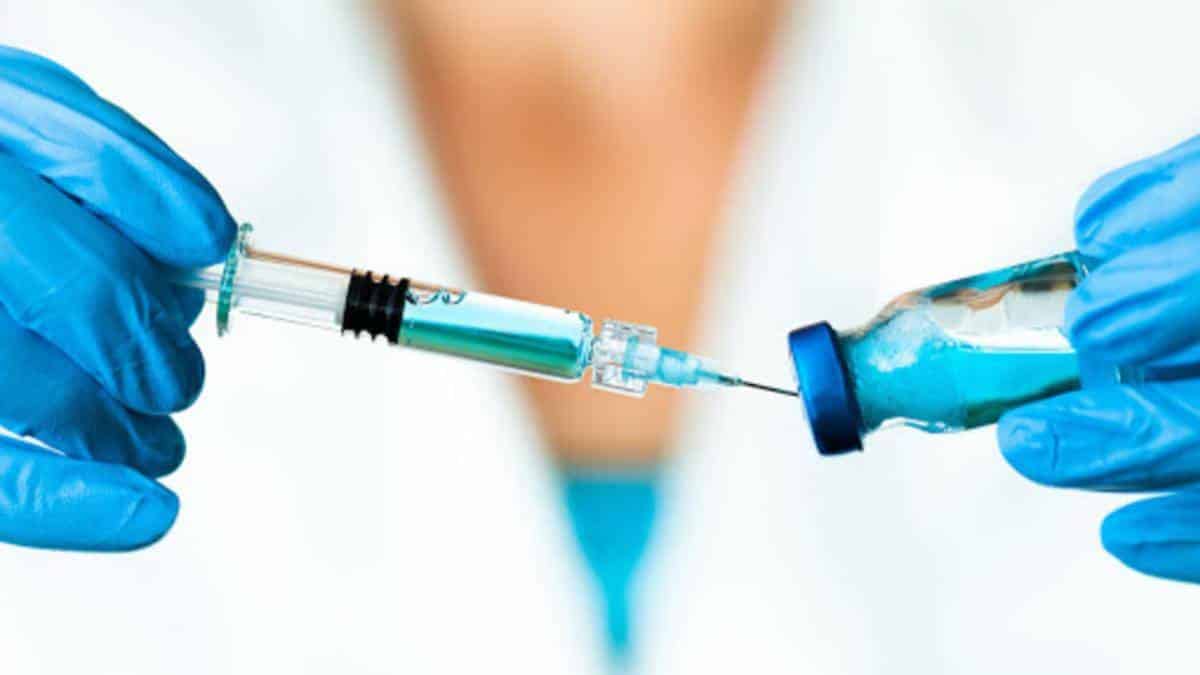RIO DE JANEIRO, BRAZIL – Covid-19 vaccine administration in Brazil has raised questions about their potential side effects. The most common reactions after vaccination include pain or tenderness and swelling at the injection site, in addition to low fever and body aches, according to the Brazilian Society of Immunizations (SBim).

People may also experience fatigue and chills, according to the World Health Organization (WHO). Symptoms may emerge at the time of administration, or between 24 and 48 hours thereafter, and cease in a few days.
According to Alvaro Furtado, an infectologist at the Clínicas Hospital of the University of São Paulo (USP), adverse reactions can be classified as mild, moderate and severe and are common to all available Covid-19 vaccines.
“Not all people develop adverse effects. When they do occur, they are mostly mild, transient effects that disappear within 24 to 48 hours, and are not life-threatening,” he says.
The infectologist explains that there is no scientific evidence that one vaccine causes more intense adverse events than others. “For Covid-19, although vaccines are produced with different technologies, adverse effects are very similar among Pfizer, Coronavac, AstraZeneca, Covaxin, Sputnik and Janssen’s vaccines,” he says.
Ana Paula Burian, director of the Brazilian Society of Immunizations (SBIm) – Espírito Santo Region, points out that the potential risk of serious adverse effects after vaccination is much lower than the risk of Covid-19 infection. She stresses the importance of monitoring the signs and seeking medical attention should the symptoms persist for more than 48 hours or intensify, irrespective of the duration.
The expert says there is no scientific explanation as to why some people experience stronger effects than others after vaccination. “We are different, there is no explanation for that. You can vaccinate siblings, from the same family, same father and mother, and one of them doesn’t have any symptoms and the other one is in bed, for instance,” she says.
According to Álvaro, there is no way to estimate the likelihood of an adverse reaction. “This is related to the genetic and immunological part, some people experience more adverse events, there is no way to foresee this,” he explains.
When to seek medical attention
Experts emphasize that all signs of a reaction that may be related to Covid-19 vaccination should be monitored. The USP infectologist recommends that people who have persistent symptoms, lasting longer than 72 or 96 hours, should seek medical attention.
“Patients who experience some truly different clinical alteration that prevents them from performing usual tasks, skin or neurological alterations, difficulty in moving, or symptoms that worsen over time,” he explains.
The expert says that medical investigation is critical to clarify whether these effects may in fact be related to vaccine administration. “Often, a person is administered a vaccine and begins to experience some events, but there is another cause. The medical professional’s role is to assess whether the cause and effect relationship is significant.”
Technology vs. side effects
Overall, the package inserts of vaccines authorized for use in Brazil – Oxford/AstraZeneca, Coronavac, Pfizer/Biontech, Johnson & Johnson, Sputnik V and Covaxin – describe similar adverse reactions. The most common effects cited are pain, tenderness, and redness at the application site, as well as fatigue, discomfort, body aches, fever, and chills.
The director of the Brazilian Society of Immunizations explains that science has been working to investigate the potential impacts of the different technologies used for vaccine production on the potential side effects.
AstraZeneca, Johnson & Johnson and Sputnik V vaccines use a technology known as viral vector, a weakened virus that carries the viral genes into the cells, thereby boosting the immune response.
The Coronavac and Covaxin vaccines, meanwhile, use an inactivated coronavirus version to trigger antibody production. The Pfizer/Biontech vaccine, on the other hand, is produced with messenger RNA (mRNA) technology, in which the synthetic genetic material carries the SARS-CoV-2 genetic code and encourages the body to produce antibodies against the virus.
According to the expert, the relationship between technologies and specific adverse reactions is still uncertain. However, studies have mainly investigated the development of thrombosis by vaccines that use viral vector technology.
“It’s a new technology, the previous link we have is with the Ebola vaccine that was used in Africa to contain the disease and that was also of viral vector. What we don’t know yet is if all people will have this kind of reaction by taking this vaccine, only time will tell,” he said.
Cases of people with blood clots allegedly related to the Covid-19 vaccine have been reported in Brazil and in countries such as the United Kingdom, the United States, Germany, Belgium, and Canada.
The investigations are ongoing and occur after the administration of the Oxford/AstraZeneca, Pfizer/BioNTech, Johnson & Johnson, and Moderna vaccines. International health organizations and entities stress that the benefits of vaccination outweigh the risks of infection and aggravation of Covid-19.
Irrespective of the technology used, vaccines do not allow Covid-19 to develop. Vaccines ensure protection because they prevent the disease, particularly in severe forms, reducing the chances of death and hospitalization.
Although it does not prevent virus infection or transmission, vaccination is essential, as it prompts the body’s defense system to produce immunity against the coronavirus through the action of specific antibodies, according to the Brazilian Society of Immunizations (SBIm).
According to the World Health Organization (WHO), moderate side effects after vaccination may signal that the vaccine is working and that the immune system is responding as it should.
Severe allergic reactions
According to SBIm, allergic reactions are uncommon, but may occur after the administration of any vaccine. Symptoms such as shortness of breath, intense itching or muscle paralysis may signal an allergic reaction to the vaccine and require medical attention.
According to estimates from the U.S. Centers for Disease Control and Prevention (CDC), an allergic reaction called anaphylaxis is extremely rare after Covid-19 vaccination, affecting only about 2 to 5 cases per million people vaccinated in the United States.

